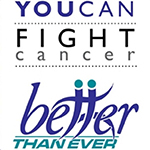 Setsuko K. Chambers, MD, and the Better Than Ever Scientific Review Committee announced Tuesday, Aug. 30, that Victor Gonzalez, MD, a UA assistant professor of Radiation Oncology, won a $20,000 grant award from the University of Arizona Cancer Center’s Better Than Ever Program.
Setsuko K. Chambers, MD, and the Better Than Ever Scientific Review Committee announced Tuesday, Aug. 30, that Victor Gonzalez, MD, a UA assistant professor of Radiation Oncology, won a $20,000 grant award from the University of Arizona Cancer Center’s Better Than Ever Program.
A UA Cancer Center member, Dr. Gonzalez and his research team will use the money to investigate a new technique called Surface Mapped Radiotherapy, or SMART, for a precision medicine approach to breast cancer treatment. The theme of his application: “Patient-specific customized bolus for reducing skin toxicity during post-mastectomy radiotherapy.”
Dr. Chambers not only leads the Better Than Ever (BTE) committee, but is director of Women’s Cancers, the Bobbi Olson Endowed Chair in Ovarian Cancer Research, a professor and director of Gynecologic Oncology at the UA Cancer Center, and vice chair of the UA Department of Obstetrics and Gynecology.
The BTE training program is a fitness training and fundraising program designed to help make walking, running or biking a regular part life. The program also raises funds to support investigator-initiated clinical trials focusing on breast and gynecologic cancers under the umbrella of Women’s Cancers at the University of Arizona Cancer Center. This year, it continued to focus on investigator-initiated clinical trials for women’s cancers.
 “For the past 16 years, the BTE Scientific Review Committee has chosen recipients for these grants,” Dr. Chambers said. “Unfortunately, we are nearing the end of the BTE program, with the retirement of the program founder and champion, Heather Alberts. This has been an extremely successful UA Cancer Center outreach effort and we are pleased that this year’s award brings the 16-year grant distribution total to more than $1.9 million. We hope to be able to offer one last RFA later this year. We congratulate this year’s recipient.”
“For the past 16 years, the BTE Scientific Review Committee has chosen recipients for these grants,” Dr. Chambers said. “Unfortunately, we are nearing the end of the BTE program, with the retirement of the program founder and champion, Heather Alberts. This has been an extremely successful UA Cancer Center outreach effort and we are pleased that this year’s award brings the 16-year grant distribution total to more than $1.9 million. We hope to be able to offer one last RFA later this year. We congratulate this year’s recipient.”
Following is a description of Dr. Gonzalez proposal from his 2016-17 grant application:
 Victor J. Gonzalez, MD – “Patient-specific customized bolus for reducing skin toxicity during post-mastectomy radiotherapy” – Radiation therapy is an important part of breast cancer treatment. Patients who require radiation therapy following mastectomy are at higher risk for having more serious complications. The most common side effects of radiation are irritation and peeling of the skin. These side effects can potentially lead to long-term complications, especially in women who choose to have breast reconstruction. With the pilot funds provided through Better Than Ever, our group will be investigating a new technique called Surface Mapped Radiotherapy, or SMART. SMART uses a patient’s individual anatomy to estimate skin doses before the start of radiation treatment. This information is then used to take a patient-specific radiation compensator. A compensator is a special type of plastic mold that is placed on the skin during radiation treatment to adjust the amount of radiation reaching the skin. By making the radiation dose at the skin surface more even, we hope this technique will be able to reduce the side effects from post-mastectomy radiation.
Victor J. Gonzalez, MD – “Patient-specific customized bolus for reducing skin toxicity during post-mastectomy radiotherapy” – Radiation therapy is an important part of breast cancer treatment. Patients who require radiation therapy following mastectomy are at higher risk for having more serious complications. The most common side effects of radiation are irritation and peeling of the skin. These side effects can potentially lead to long-term complications, especially in women who choose to have breast reconstruction. With the pilot funds provided through Better Than Ever, our group will be investigating a new technique called Surface Mapped Radiotherapy, or SMART. SMART uses a patient’s individual anatomy to estimate skin doses before the start of radiation treatment. This information is then used to take a patient-specific radiation compensator. A compensator is a special type of plastic mold that is placed on the skin during radiation treatment to adjust the amount of radiation reaching the skin. By making the radiation dose at the skin surface more even, we hope this technique will be able to reduce the side effects from post-mastectomy radiation.
This is a highly collaborative project between the Department of Radiation Oncology and the Medical Physics Program. Ultimately, this research will serve as the foundation for a multi-institutional trial to assess the impact of this technique on patient quality of life.
“This is a good example of the personalized treatments and advanced technologies that are only available at an academic medical center,” said physicist and co-investigator Yongbok Kim, PhD.
In its announcement of the award, the scientific review committee thanked all BTE program members—writing, "We are very grateful for their hard work and support over the years, without which this vital program would not be possible."

